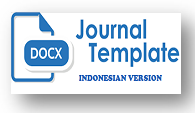Sistem Absensi Online Berbasis Website Studi Kasus: Program Studi Ilmu Komputer Universitas Pat Petulai
DOI:
https://doi.org/10.29240/arcitech.v3i2.9637Keywords:
Computer Science, PHP, Attendance, Black BoxAbstract
Downloads
References
Alif, Gilang mulia. (2020). Sistem informasi absensi berbasis WEB di politeknik negeri padang.
Gustiar, supratman zakir, wedra aprison, zulfani sasmiarni (2022).. perancangan absensi siswa berbasis web berbasis PHP MySQL di SMA negeri 1 palupuh.
O’Reilly, T.(2004). What is Web 2.0: Design Patterns and business models for the
next generation of software. O’Reiliy media inc.
Rut, chrystin saragi napitu, indri anugrah ramadhani, firman firman (2020).
Perancangan sistem absensi berbasis web pada program studi PTI UNIMUDA sorong.
Sugiyono. (2017). Metode Penelitian Kuantitatif, Kualitatif, dan R&D. Bandung:Alfabeta, CV
Triyono, Rosiana Safitri, Taufik Gunawan. (2018). Perancangan sistem informasi absensi guru dan staff pada SMK pancakarya tangerang berbasis web.
Yuliadi, Mohammad, Taufan asri zaen, nora dery sofya, sonia (2022). Rekayasa sistem informasi absensi siswa sekolah berbasis internet.
Wicaksono, A.(2018). Perancangan Sistem informasi absensi online berbasis website pada PT. XYZ. Jurnal informatika, 6(2), 57-63.
Downloads
Published
How to Cite
Issue
Section
Citation Check
License
Authors who publish with Arcitech: Journal of Computer science and Artificial Intelligence agree to the following terms:
- Authors retain copyright and grant the journal right of first publication with the work simultaneously licensed under a Creative Commons Attribution-NonCommercial-ShareAlike 4.0 International License (CC BY-NC-SA 4.0) that allows others to share the work with an acknowledgment of the work's authorship and initial publication in this journal.
- Authors are able to enter into separate, additional contractual arrangements for the non-exclusive distribution of the journal's published version of the work (e.g., post it to an institutional repository or publish it in a book), with an acknowledgment of its initial publication in this journal.
- Authors are permitted and encouraged to post their work online (e.g., in institutional repositories or on their website) prior to and during the submission process, as it can lead to productive exchanges, as well as earlier and greater citation of published work (See The Effect of Open Access).













